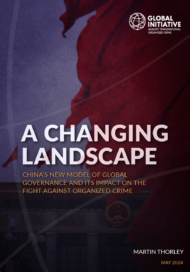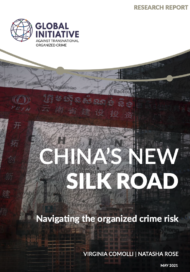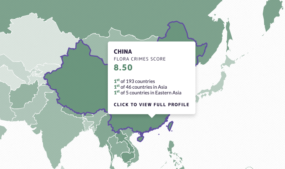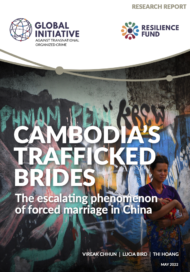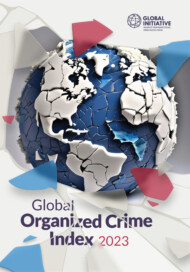Posted on 09 May 2024
Under the concept of Community of Common Destiny for Mankind, the People’s Republic of China (henceforth referred to as ‘China’) has brought together a suite of initiatives that represent a new international relations framework, through which it aims to reform global governance.
These include the Global Security Initiative (GSI), which is the most tangible manifestation of a wider development: China’s evolving engagement in international crime prevention. Framed in a way that encompasses both traditional and non-traditional security, China’s international promotion of the GSI has implications for global crime prevention norms. While China’s capacity to shape these norms should not be overstated, the GSI has already achieved a degree of uptake beyond countries commonly grouped as the ‘West’, including in global pariah states such as Syria. At the same time, analysis that looks predominantly at the impact of the GSI in liberal democratic states, or that considers the parameters most useful in analyzing liberal democratic legal systems, risks overlooking broader shifts in security norms.
The GSI and associated Chinese party-state endeavours use familiar terms (for example, ‘rule of law’) in ways that are different from their more commonly understood meanings in the context of the so-called liberal international order. In addition to issues of meaning and language, there are fundamental differences between the GSI and existing norms related to accountability and power that demonstrate vast divergence between the existing order and what is proposed, creating potential hazards for those working on global crime prevention. The characteristics of the GSI are best understood in the context of China’s domestic approach to crime prevention, in which the party-state is vested with vast powers and the law is best seen as a tool utilized by the political elite. This suggests that substantive international cooperation with China on crime prevention would be possible only where it aligns with the interests and principles of the Chinese Communist Party (CCP).
Beginning from the perspective that all proposals with the capacity to shape global crime prevention norms merit scrutiny, this report explores the broader implications of China’s proposals before detailing two case studies that allow for deeper examination of potential risks associated with the approach. By revealing previously unknown networks and relationships, the findings suggest there could be a gap between principle and practice. A pushback by China against cybercrime hubs in South East Asia, for example, includes instances where the party-state appears to demonstrate a high tolerance for organized crime. These cases raise questions about whether the Chinese party-state is prepared to associate with serious criminals when doing so would enable it to further its objectives abroad, for example as part of its cultivation of political elites.
The findings of this report, within the context of a growing body of evidence, suggest that use of the term ‘geocriminality’, may be useful in explanation and conceptualization of state-crime nexus phenomena. The term here refers to a state’s use of criminal actors to achieve objectives in target countries, in the same way as the term geoeconomics describes the manipulation of economic tools in target countries to the same ends. This report is intended as an exploratory assessment of this issue and concludes that further research is merited.
